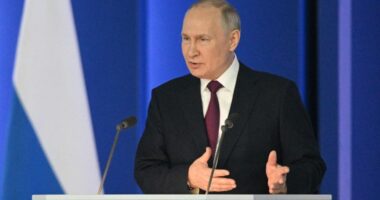
Federal Reserve governor Lael Brainard, the White House nominee to serve as the central bank’s No. 2 official, is set to tell Congress that efforts to reduce inflation are the central bank’s “most important task.”
Ms. Brainard, who joined the Fed in 2014, was a forceful advocate last year for ensuring that the central bank didn’t prematurely curtail stimulus as part of a focus on spurring a robust labor-market recovery.
Her prepared testimony, set to be delivered Thursday morning at her confirmation hearing before the Senate Banking Committee, is the latest sign of how the central bank has firmly pivoted toward fighting inflation. Fed officials have signaled in recent days that they could raise interest rates at their meeting in mid-March.
In her statement released Wednesday, Ms. Brainard calls attention to a swift decline in unemployment. “But inflation is too high, and working people around the country are concerned about how far their paychecks will go,” she says. “Our monetary policy is focused on getting inflation back down to 2% while sustaining a recovery that includes everyone.”
Brisk demand for goods and shortages of intermediate goods such as semiconductors have pushed 12-month inflation to its highest readings in decades. Core consumer prices, which exclude volatile food and energy categories, were up 4.7% in November from a year earlier, according to the Fed’s preferred gauge, well above the Fed’s 2% target.
Ms. Brainard won bipartisan support when she was confirmed to her current post at the Fed in 2014 and when she became a top Treasury Department official in 2010 during the Obama administration. She also served as an adviser on international economics to President Clinton.
In her statement she highlighted her experience addressing financial crises in Asia and Latin America in heralding the dangers of rising prices. “In some foreign countries, I saw up close how high inflation hurts workers and families, especially the most vulnerable,” she says.
Ms. Brainard, 59, has worked closely with Fed Chairman Jerome Powell during his tenure leading the central bank. Last November, Mr. Biden nominated Mr. Powell to serve another term leading the Fed after his current one expires next month. The president promoted Ms. Brainard to serve as second-in-command after also considering her as a candidate to serve as Fed chairwoman.
If confirmed, Ms. Brainard would succeed Richard Clarida, who is set to resign on Friday.
Write to Nick Timiraos at [email protected]
Copyright ©2022 Dow Jones & Company, Inc. All Rights Reserved. 87990cbe856818d5eddac44c7b1cdeb8









